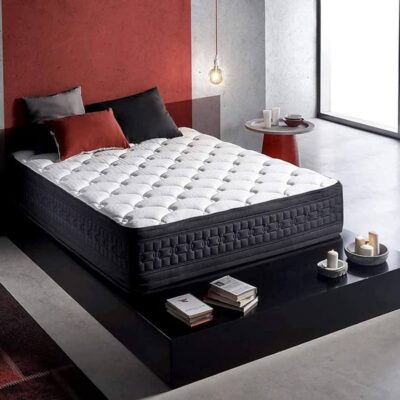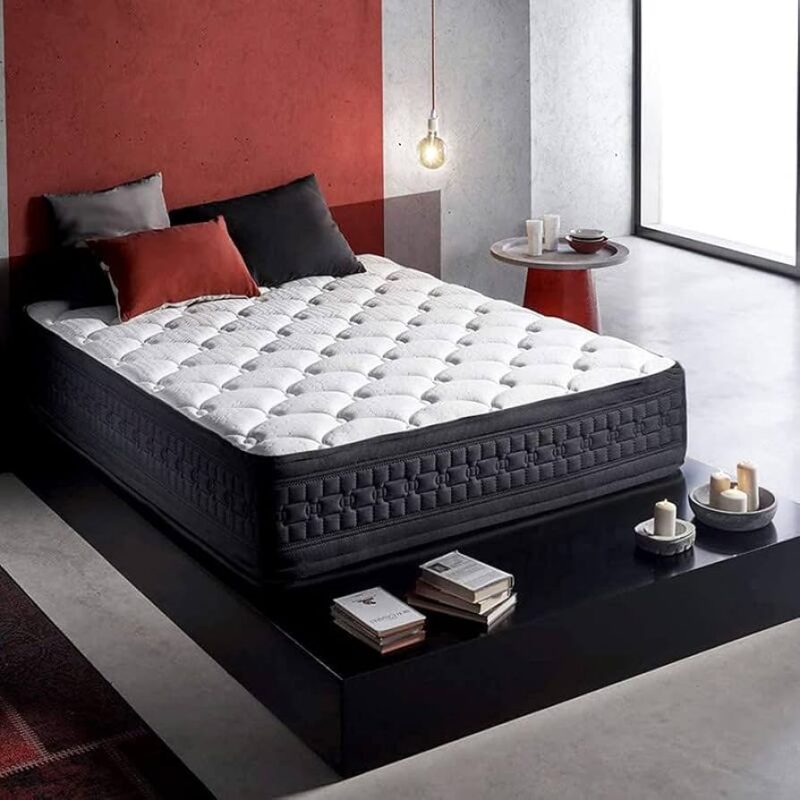Shopping for a mattress can be overwhelming, but with the right information, you can find the perfect one for a good night’s sleep. Here’s a comprehensive guide to help you navigate the process:
1. Know Yourself:
-
Sleeping position: Side, back, stomach, or combination? Different positions require different levels of support and firmness.
- Side sleepers: Need a softer mattress that conforms to your curves and pressure points.
- Back sleepers: Need a medium-firm mattress that supports your spine’s natural alignment.
- Stomach sleepers: Need a firmer mattress to keep your hips from sinking and causing back pain.
- Combination sleepers: Can choose a medium-firm mattress with good pressure relief.
-
Body type: Weight and height also play a role in mattress choice. Heavier individuals may need a firmer mattress for proper support, while lighter individuals may do better with a softer mattress.
-
Personal preferences: Do you like a plush, sinking feeling or a more supportive feel? Do you sleep hot or cold? Consider these factors when choosing materials and features.
2. Set a Budget:
Mattresses can range from a few hundred dollars to several thousand. Determine how much you’re willing to spend before you start shopping.
3. Research:
- Read online reviews: Check out consumer reports and mattress review websites to get an idea of different brands and models.
- Ask for recommendations: Talk to friends, family, and your doctor for their suggestions.
4. Test Drive:
Once you’ve narrowed down your options, it’s time to try out some mattresses in person. Here are some tips for testing:
- Spend at least 10-15 minutes on each mattress: Lie down in your usual sleeping positions and pay attention to how your body feels.
- Bring a pillow from home: This will help you feel more comfortable and relaxed.
- Ask questions: Don’t be afraid to ask the salesperson about the mattress’s construction, materials, and warranty.

5. Consider the following features:
- Firmness: As mentioned earlier, firmness is crucial for proper support and comfort. Choose a firmness level that’s right for your sleeping position and body type.
- Material: Innerspring, memory foam, latex, or hybrid? Each material has its own pros and cons. Consider your budget, preferences, and any allergies you may have.
- Cooling features: If you sleep hot, look for a mattress with cooling gel or other temperature-regulating features.
- Motion isolation: If you sleep with a partner, you’ll want a mattress that minimizes motion transfer. This will help you sleep undisturbed if your partner moves around at night.
- Warranty: Most mattresses come with a warranty that covers defects in materials and workmanship. Choose a mattress with a long warranty for peace of mind.
Additional tips:
- Don’t be pressured to buy on the spot: Take your time and compare prices before making a decision.
- Beware of sales gimmicks: Don’t be fooled by high discounts or pressure tactics.
- Read the fine print: Make sure you understand the return policy and warranty before you buy.
By following these tips, you can find the perfect mattress for a good night’s sleep and a healthier you.
I hope this information helps! Let me know if you have any other questions.

